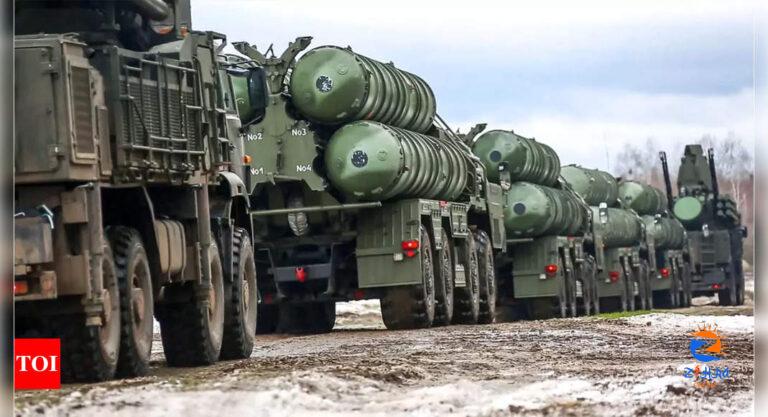
[ad_1]
The waiver, if it passes muster in the US Senate and is signed into law by the President, will help New Delhi avoid sanctions for purchase of critical defense equipment from Russia, such as the S-400 missile system.
Normatively speaking, the President does not need legislative approval for a waiver. He has the executive authority to do so, but Congressional support helps, in keeping with the spirit of one President who once sought legislative cover for action, saying, “You’ve convinced me. Now go out and bring pressure on me.”
The waiver provision, piloted by Indian-American Congressman Ro Khanna, was passed by a voice vote as part of an en bloc amendment during floor consideration of the National Defense Authorization Act (NDAA), that the House cleared 330-99.
“The United States must stand with India in the face of escalating aggression from China. As Vice Chair of the India Caucus, I have been working to strengthen the partnership between our countries and ensure that India can defend itself along the Indian Chinese border. This amendment is of the utmost importance, and I am proud to see it pass the House on a bipartisan basis,” Khanna, who represents the district that is home to Silicon Valley in California, said in remarks on the House floor, describing the amendment as the “most significant piece of legislation for US-India relations out of Congress since the US-India nuclear deal.”
The waiver is far from done though, considering it needs to be reconciled with a version in the Senate and then signed into law by the President. But barring untoward developments, no derailment is expected, with the administration aligned with lawmaker sentiments (or vice-versa).
The development comes at a time ties between Washington and Moscow are at a nadir, and US ties with China also under strain, aggravated by Beijing’s tacit support for Russia. India, which maintains healthy relations with Russia, has rejected US efforts to curtail those ties, asserting its right to a foreign policy and defence purchases — specifically that of S-400, supply of which is already underway — based on its threat assessment in which China figures prominently.
Khanna’s amendment though called for continued US efforts to wean India away from Russian military supplies, implicitly suggesting this could be a one-off exception.
While urging Congress to recognize that India faces immediate and serious regional border threats from China, with incessant military aggression along the border, the lawmaker called for additional steps to transition India from Russia-built systems to “strongly supporting India’s defense needs” — a euphemism for US supplies.
In this context, the legislation talked up the US-India Initiative on Critical and Emerging Technologies (ICET) — announcing during the recent Tokyo meeting between President Biden and Prime Minister Modi — saying it is a welcome and essential step to developing closer partnerships between governments, academia, and industry in the two countries to address the latest advances in artificial intelligence, quantum computing, biotechnology, aerospace, and semiconductor manufacturing.
Such collaborations between engineers and computer scientists are vital to help ensure that the United States and India, as well as other democracies around the world, foster innovation and facilitate technological advances which continue to far outpace Russian and Chinese technology, the legislation said.
[ad_2]